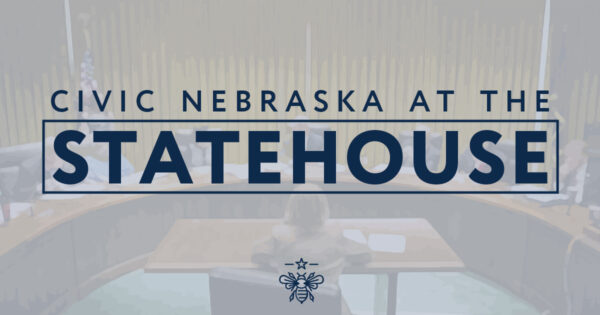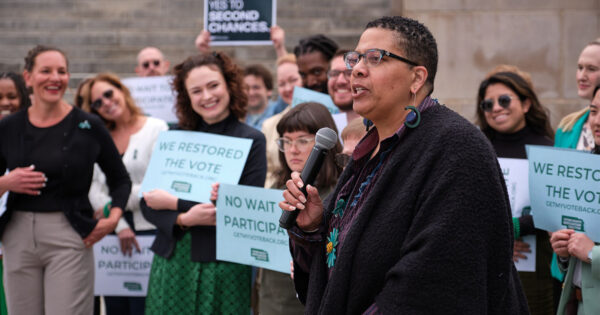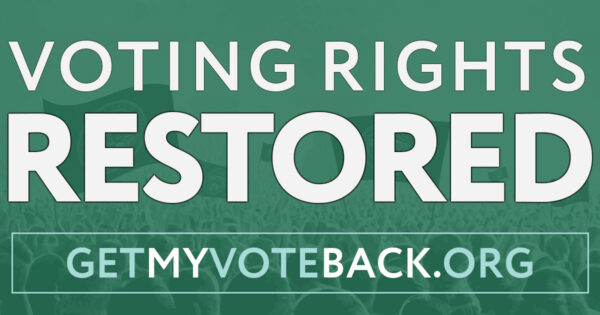“The Great Society rests on abundance and liberty for all. It demands an end to poverty and racial injustice, to which we are totally committed in our time. But that is just the beginning…” – President Lyndon B. Johnson

In giving a commencement speech at the University of Michigan, President Lyndon B. Johnson laid out his vision for a “Great Society”. The Voting Rights Act of 1965, a piece of legislation signed by President Johnson, sought to ban literacy tests and other discriminatory methods of denying suffrage to minority voters. Fifty years ago President Johnson signed this legislation and yet, across the nation, we hear these stories:
Luis Pazmino, Pennsylvania: Luis was shoved by a an election judge and told “You’re not supposed to be here” for exercising his right to provide translation services for some of the elderly tenants in his housing project, who elected him to represent them. (National Association of Latino Elected and Appointed Officials Educational Fund)
Harris County, Texas: A voter drove her visually impaired friend to the polls and reported that the poll workers refused to offer curbside voting and told the voter and friend to come inside. Once inside, there was no machine that would have allowed the friend to vote independently. 2014 Election (Lawyer’s Committee, 2014 Election Report: Democracy should not be this hard)
Ruby Barber, Texas: A 93 year old Texas voter was initially denied an Election Identification Certificate (EIC), Texas’s voter ID card. Her driver’s license expired in 2010 and her health condition precludes her from obtaining a new one. She needed a birth certificate to receive an EIC, at 93 years old, born in 1921 in rural Tennessee, she did not have access to one. General Election 2014. MSNBC, “A 93-year-old woman among those facing voting hurdles in 2014”)
Omaha, Nebraska: Omaha voters show up to their usual polling location, but are asked for their voter identification numbers – the numbers assigned by the Secretary of State and included on the mailed voter registration confirmation card. Voter identification numbers are not required to vote in Nebraska. Voters that could not remember or provide their number were turned away from the polls. General Election 2012.
Greta McCool, Wisconsin: Greta, a certified nurse midwife, works at a hospital in the inner city and commutes to the suburbs. On Election Day in 2014 she was scheduled to work 7am to 7pm and her commute is about 45 minutes. With the limited weekday early voting and no weekend voting, Greta was severely limited in when she could vote. General Election 2014. (MSNBC, “A 93-year-old woman among those facing voting hurdles in 2014”)
On that day President Johnson asked Michigan graduates if they would join him in this battle, to eliminate racial injustice and battle to build the Great Society. Fifty years later and the injustice has morphed, it is no longer the blatant discrimination we read in history books. Today injustice are policies and legislation that roll back the progress of election accessibility, it’s less opportunity to vote early, it’s requiring additional documents to vote on Election Day, it’s turning away individuals at the polls. It’s injustice. Today we don’t celebrate the 50 years of the Voting Rights Act, we ask how we can restore its protections.
We remember President Johnson’s closing remarks: “There are those timid souls that say this battle cannot be won; that we are condemned to a soulless wealth. I do not agree. We have the power to shape the civilization that we want”.
Interested in learning more about voting since the Voting Rights Act? Check out this Huffington Post Article.



